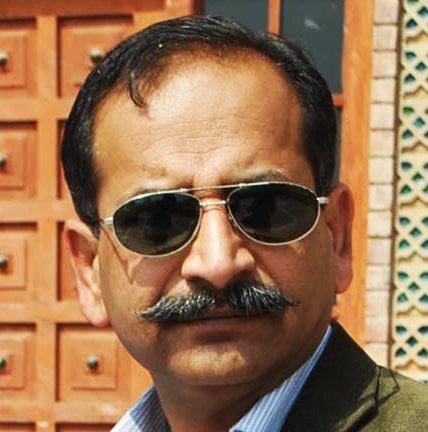Terrorism directly damages all type of trade and business activities in a country. For a terrorism-stricken country like Pakistan, it becomes very difficult to keep its economy stable on long-term basis. Business and trade activities bring prosperity not only to the investors or traders at individual level but to the whole society. Increase in exports, construction of new roads and motor-ways, plans of running bullet-trains, erection of new shopping malls and plazas, establishment of new factories and above all the projects like CPEC, internationally all such development projects are considered positive indicators of growing business activities. Moreover such projects provide new prospects of employment to the youth also but without foreign investment this business activity could never be a speedy process in countries like Pakistan. When we talk of foreign investment in Pakistan, we find our old friend China topping the list of foreign investors in Pakistan. According to data released by State Bank of Pakistan the inflows of investment from China had been 56 percent of the total foreign investment into Pakistan during July – April 2016/2017. The report says that total foreign investment into Pakistan during first ten months was recorded $1.345 billion out of which inflows from China had been recorded at $754.3 million in the same months of the current fiscal year. Analysts are of the opinion that the inflows towards projects under China Pakistan Economic Corridor were the prime reason for this increase. However ups and down in foreign investment badly affect the trade and business activities. According to a recent survey, the Foreign Direct Investment in Pakistan averaged 2651.26 USD Million from 2010 until 2016, reaching an all time high of 3184.30 USD Million in 2010 and a record low of 2099.10 USD Million in 2012. Such up and down in foreign investment mars the development graph of the country’s economy. Punjab, being the largest province of Pakistan, plays a very important role in the economy of the country. In 2009, feeling the increasing need of foreign investment in the country and particularly in Punjab, the government of Punjab established a department with the name of the Punjab Board of Investment & Trade commonly known as PBIT. The actual responsibility of the PBIT is to urge and motivate the foreign investors to invest in different development projects in Punjab as much as possible. Since its inception, PBIT has been striving hard towards achieving the vision of a prosperous Punjab under the magnificent command of Mr. Shehbaz Sharif, the Chief Minister of Punjab. The PBIT focuses on three areas relevant to economic development: facilitating new and existing businesses; creating a mutually beneficial business environment through proactive policy advocacy both at the provincial and federal level and, promoting Punjab as the ultimate investment destination. Mr. Muhammad Haroon Shaukat, a seasoned diplomat, is the Chief Executive Officer of PBIT. Before his appointment as the C.E.O PBIT, he had served as Pakistan’s ambassador to Turkey, Bolivia, Columbia, Paraguay and Suriname. PBIT is doing marvelous efforts to invite more and more foreign investors to Punjab. In pursuance of this pro-investment approach and to promote potential investment opportunities, Government of the Punjab conducted a two day International seminar on Business Opportunities in Punjab 2017 on 22 & 23 May 2017 in Lahore. Investors from 400 countries attended this seminar. Various stalls were held to brief the overseas investors regarding investment plans in various sectors. The speakers at the seminar told the audience that there are very bright prospects for the foreign investors in the field of communication, import and export, education as well as in the field of agriculture. It was also told to the audience that Pakistan owns a very fertile and blessed type of land that can cultivate huge outcomes for the investors. In short this seminar was a success story on the credit of the PBIT and the Chief Minister of Punjab Mian Mohammad Shehbaz Sharif.
We must keep in mind while discussing flourishing economic activities in Pakistan that no business activity could be possible without flawless law and order situation. The security agencies including the army, the rangers, the police and the intelligence agencies play a very important role in maintenance of law and order situation. Punjab is lucky enough that here circumstances pertaining to the safety and security of the foreign investors are far better than other provinces though situation is getting better there too. Unfortunately Pakistan had been an undeclared battle-field of interests for so many countries in previous years. Countless hostile intelligence agencies had been trying to destroy the whole social and economic structure of Pakistan with the help of suicidal attacks, bomb blasts and kidnapping of foreigners working on different development projects. Pakistan had to face severe losses as a result of these terrorist activities. A lot of local and foreign investors shifted their business projects to the Gulf States; Bangladesh also became one of their choices. Feeling the gravity of the situation, the security forces of Pakistan did all their best to give the terrorists and their god-fathers a very tough time and to shun them out of Pakistan. Arrest of an Indian intelligence officer from Balochistan was also a very important mile-stone in this regard. Though we cannot say that Pakistan has succeeded in wiping off the dirt of terrorism completely but Pakistan has done a great job in this reference. Cleaning up of terrorists is still in process; our nation is very much confident that soon Pakistan would be a ‘Terrorism Free Country’. With its limited resources Pakistan is trying to do the difficult job of controlling terrorists and terrorism. Now it is the responsibility of the world-around to co-operate with Pakistan in doing this difficult job.
